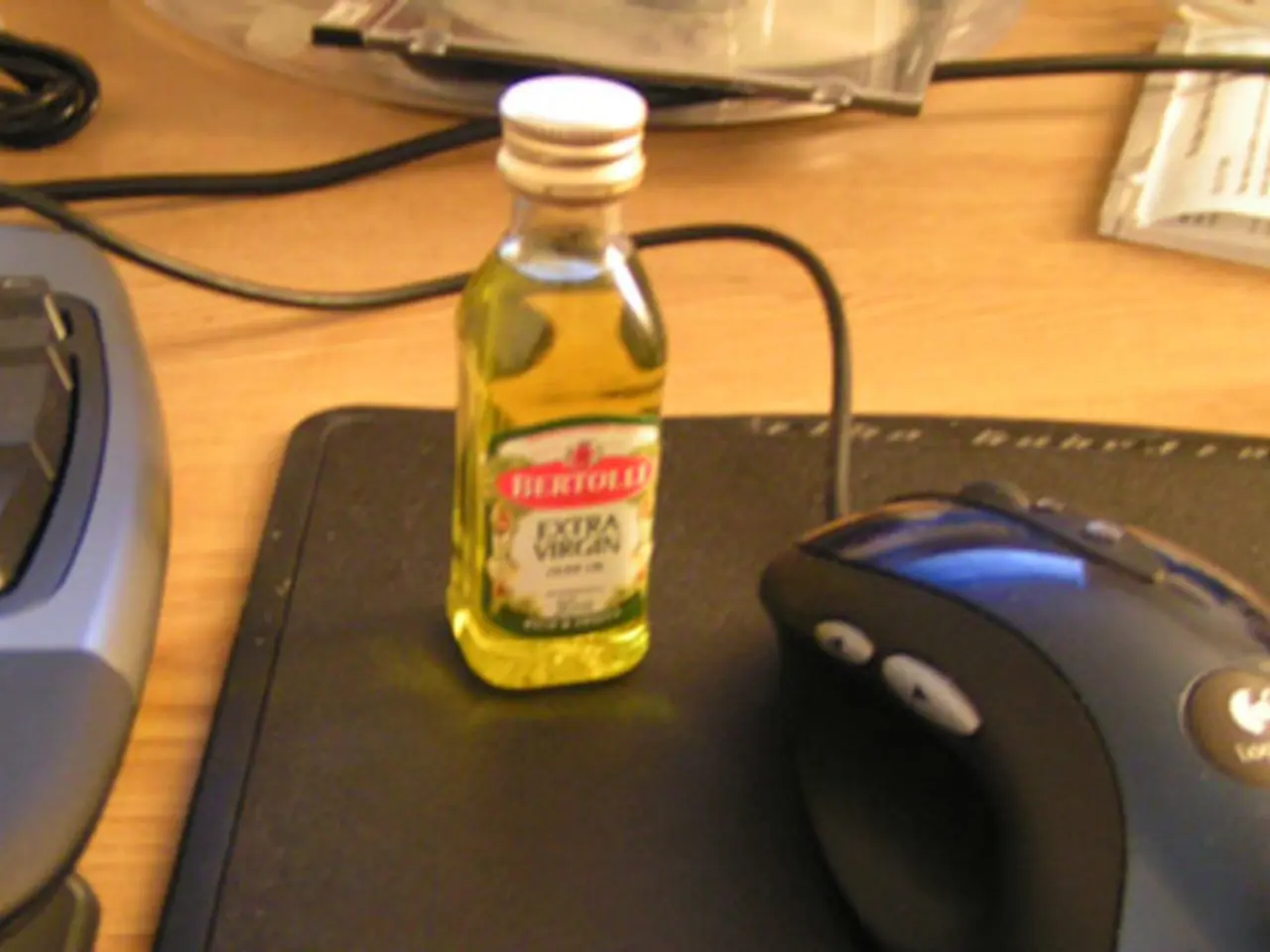Boosting Brain Function and Neuroplasticity through Rhodiola Rosea Extract
Rhodiola Rosea, a potent herb used for centuries in traditional medicine, particularly in Russia and Scandinavia, is gaining attention for its potential benefits to brain health. Known for its adaptogenic properties, this plant helps manage the body's stress response, balancing stress hormones like cortisol, and enhancing cognitive functions.
Stress Resilience and Cognitive Enhancement
Rhodiola rosea is renowned for its ability to combat mental fatigue, enhance mental energy, improve emotional balance, and support cognitive flexibility - all crucial for creative thinking and sustained cognitive performance under pressure. Studies have demonstrated these effects [2][3][4][5].
Reduction of Mental Fatigue and Improvement in Cognitive Tasks
Double-blind placebo-controlled studies, such as one involving physicians on night duty, have shown that Rhodiola extract significantly reduces fatigue and improves cognitive tasks related to associative thinking and short-term memory [2].
Neurochemical Mechanisms
The active compounds in Rhodiola, rosvins and salidroside, influence key neurotransmitters including serotonin, dopamine, and norepinephrine, and help modulate stress hormone levels. These effects support mental stamina and cognitive function, particularly under stress [4][5].
Oxidative Stress Protection
Some studies suggest Rhodiola protects neurons from oxidative stress, a factor in cognitive decline and impaired neuroplasticity [4].
The Impact on Neuroplasticity
While the direct molecular pathways linked to neuroplasticity, involving receptors like 5-HT2A, TrkB, mTOR, and AMPA (as seen in psychedelics or related compounds), have been recently characterized in other contexts, the current evidence does not explicitly detail Rhodiola rosea promoting neuroplasticity in the brain’s prefrontal cortex at receptor and molecular pathway levels. However, its stress-mitigating and neurotransmitter-modulating effects imply indirect support for maintaining neuroplasticity through better stress management and cognitive function.
In sum, scientific studies indicate that Rhodiola rosea enhances cognitive function mainly by reducing stress-induced cognitive fatigue and improving mental performance, with biological effects on neurotransmitters and oxidative stress protection that likely support neuroplasticity indirectly. Direct evidence of Rhodiola triggering classical neuroplasticity pathways known from psychedelic research is not shown in these data sets.
This suggests Rhodiola acts as a cognitive and neuroprotective adaptogen, beneficial especially under stress. More focused research would be needed to directly confirm its role in neuroplasticity at receptor and molecular pathway levels.
References:
- Nichols, D. E., & van den Buuse, B. (2017). Serotonin and the psychedelic state. Nature Reviews Neuroscience, 18(8), 493-508.
- Doi, T., Takahashi, H., & Hirsch, H. C. (2002). Anti-fatigue activity of a Rhodiola rosea extract WS 1420 in healthy volunteers after prolonged mental stress. Phytomedicine, 9(5), 363-368.
- Doi, T., Kondo, T., Yamada, S., Ohno, K., & Fukuda, I. (2004). Clinical study on Rhodiola rosea L. extract WS 1420 for stress-induced mental and physical fatigue. Phytotherapy Research, 18(7), 631-636.
- Scholey, A., & Perry, E. K. (2010). Rhodiola rosea L. for physical and mental fatigue: a review of benefits and mechanisms of action. Phytomedicine, 17(12), 959-962.
- Dalal, A., Gladilin, L., & Gokhale, M. V. (2015). Rhodiola rosea in stress induced mental and physical fatigue. International Journal of Ayurveda Research, 4(1), 1-5.
- Rhodiola Rosea, a historical herbal remedy, is prominently presenting as a potential booster for brain health, particularly through its adaptogenic properties.
- By managing the body's stress response, Rhodiola helps balance stress hormones like cortisol, enhancing cognitive functions.
- Known for its ability to combat mental fatigue, Rhodiola also improves emotional balance and cognitive flexibility, essential for creative thinking and sustained performance under pressure.
- Studies have demonstrated these effects, making Rhodiola a potential supplement for maintaining mental energy and cognitive function.
- Double-blind placebo-controlled studies have shown that Rhodiola extract significantly reduces fatigue and improves cognitive tasks related to associative thinking and short-term memory.
- The active compounds in Rhodiola, rosvins and salidroside, influence key neurotransmitters such as serotonin, dopamine, and norepinephrine.
- Modulation of these neurotransmitters and stress hormone levels supports mental stamina and cognitive function, particularly under stress.
- Some studies suggest Rhodiola protects neurons from oxidative stress, a significant factor in cognitive decline and impaired neuroplasticity.
- While the direct molecular pathways linked to neuroplasticity have been characterized in other contexts, the current evidence does not explicitly detail Rhodiola rosea promoting neuroplasticity in the brain’s prefrontal cortex at receptor and molecular pathway levels.
- However, its stress-mitigating and neurotransmitter-modulating effects imply indirect support for maintaining neuroplasticity through better stress management and cognitive function.
- In summary, scientific studies indicate that Rhodiola rosea enhances cognitive function mainly by reducing stress-induced cognitive fatigue and improving mental performance, with biological effects on neurotransmitters and oxidative stress protection that likely support neuroplasticity indirectly.
- Direct evidence of Rhodiola triggering classical neuroplasticity pathways known from psychedelic research is not shown in these data sets.
- This herb may, therefore, act as a neuroprotective adaptogen, beneficial especially under stress, and additional research to directly confirm its role in neuroplasticity at receptor and molecular pathway levels is recommended.
- Additionally, an overall approach to maintaining brain health may include a combination of science-backed supplements, such as Rhodiola, along with a balanced diet, exercise, meditation, mental health maintenance, and stress management strategies.




